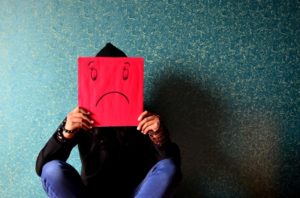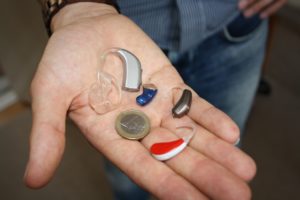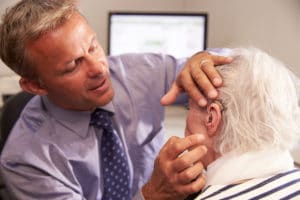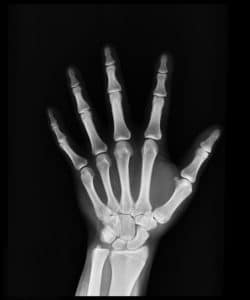Burbank residents with hearing loss are more likely to experience a variety of physical, social and psychological health problems, especially if they don’t seek treatment for their impairment. The risks are well-documented, though some are more surprising than others. The link between hearing loss and loneliness is one such example.
The Health Risks of Untreated Hearing Loss

Hearing loss is the third most common chronic physical health condition in the U.S.; only arthritis and heart disease affect more people.
An estimated 48 million Americans experience hearing loss to some degree—that’s about 20 percent of the population. Hearing aids provide benefit to most patients, but surprisingly few use them. Only about one out of every five older adults with hearing loss in Burbank who would be helped by hearing aids actually wears them.
According to JAMA Otolaryngology — Head and Neck Surgery, this puts 23 million people with untreated hearing loss at risk.
What does untreated hearing loss increase the risk of over 10 years?
- 50 percent more likely to experience dementia
- 40 percent more likely to suffer from depression
- 30 percent more likely to sustain a fall
How long does it take people to seek treatment?
The reasons for skipping treatment vary. Because hearing loss tends to develop gradually and the brain does a remarkable job of filling in the gaps, many people don’t even realize they are suffering from a hearing impairment. It takes the average patient seven years from the onset of their hearing loss to seek treatment.
Why doesn’t everyone get treated for hearing loss?
Knowledge is power, but even those who are aware of their hearing problem often choose to ignore it. Some fear the stigma associated with hearing aids, believing that wearing them will make them look older.
Hint: constantly saying “what?” or asking others to repeat themselves won’t exactly make you appear young! There may be doubt about the effectiveness of hearing aids, and the cost proves to be a barrier for some.
Unfortunately, few health plans offer coverage for hearing treatment, Medicare included. While some of these are valid concerns, not taking the steps to treat your hearing loss is like playing Russian roulette with your health.
The strain associated with following conversations in social settings makes many people withdraw from their favorite activities. Isolation is common in those with hearing loss, and this leads to loneliness; a recent Dutch study found that every decibel drop in hearing perception for people younger than 70 corresponded with a seven percent increase in severe loneliness.
The effects of untreated hearing loss get worse over time
The more severe your hearing loss, the more debilitating loneliness becomes. It often leads to additional health problems such as stress, high blood pressure and a weakened immune system.
Individuals suffering from loneliness related to hearing loss have a 40 percent higher likelihood of developing dementia and their risks of dying prematurely for any reason go up by 26 percent. This has led some health experts to compare the effects of social isolation to smoking 15 cigarettes a day.
How are hearing loss and dementia connected?
Nobody is quite sure how hearing loss, loneliness and dementia are all interconnected, but there are theories. Loneliness causes an increase in stress hormones and inflammation, two factors that are associated with dementia.
Also, the lack of brain stimulation caused by a withdrawal from social activities can hasten cognitive decline. Researchers from Johns Hopkins University are currently in the midst of a study (slated for completion in 2022) that is looking into whether treating hearing loss can delay or prevent cognitive impairment and cut down on loneliness.
If you suspect you have hearing loss, don’t wait any longer to have your hearing tested.
One thing is certain: the earlier hearing loss is diagnosed, the greater your odds of preventing a variety of health complications. If you haven’t had a hearing evaluation in a while, schedule an appointment with a Burbank audiologist as soon as possible.
Learn More About Hearing Loss






